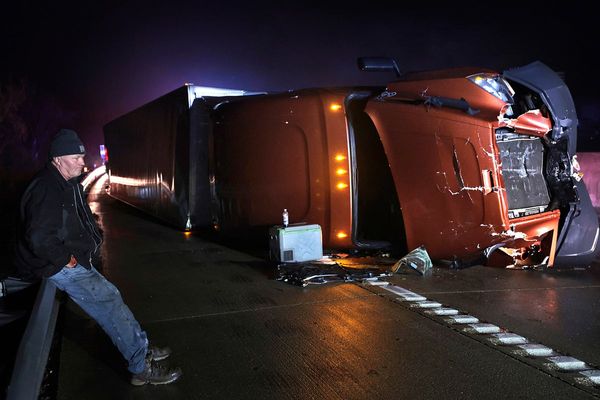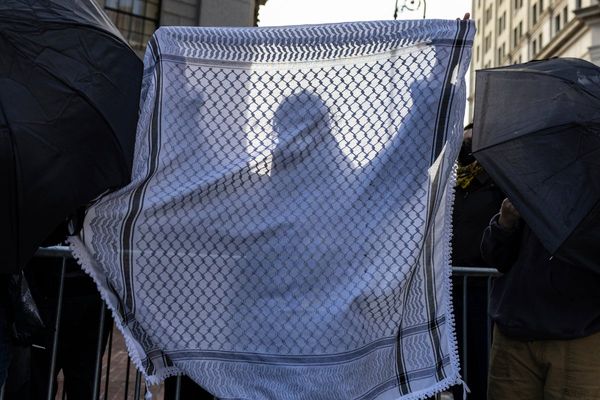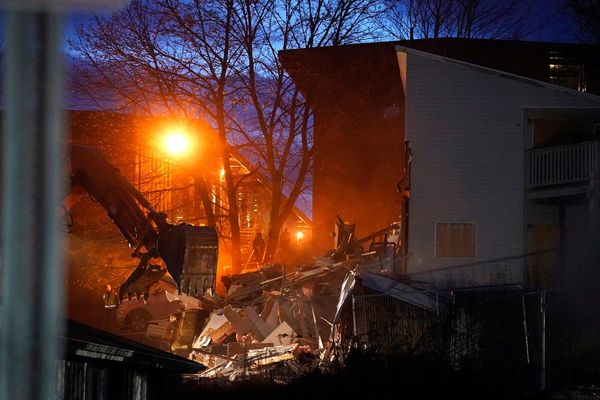
Boris Johnson and Japanese prime minister Fumio Kishida have warned that the invasion of Ukraine could be replicated in east Asia if democratic powers do not stand up to autocratic ones.
“Ukraine may be east Asia tomorrow,” Kishida said on Thursday during a visit to London, as he called for Indo-Pacific leaders to recognise that the invasion of Ukraine was not just a European problem. Asked about the implications for Taiwan, he said: “We must collaborate with our allies and like-minded countries, and never tolerate a unilateral attempt to change the status quo by the use of force in the Indo-Pacific, especially in east Asia.”
He added: “Russia’s egregious aggression against Ukraine is a clear violation of international law, which prohibits the use of force against a nation’s sovereignty and territorial integrity.”
Earlier, Johnson said: “We in the UK recognise that our security in Europe is indivisible from the security, our collective security, in the Asia-Pacific, in the Indo-Pacific region.
“And there is direct read across from the actions of autocratic, coercive powers in Europe, to what may happen in east Asia.” The two countries have signed a mutual access agreement for their two forces, in part dedicated to keep the seas free and open.
Kishida also announced new sanctions, including an asset freeze on 140 Russian individuals and the expansion of an export ban to include Russian military firms.
The package was announced the day after Russia imposed asset bans and travel freezes on 60 Japanese officials, including Japanese cabinet members and the prime minister himself. Kishida had described the Russian action as completely unacceptable.
Kishida’s ruling Liberal Democratic party has recently proposed a substantial increase in defence spending – possibly to an amount on a par with 2% of gross domestic product, up from the current 1% – and the development of the capacity to attack missile-launching sites in an enemy’s territory. He said that, in the wake of the Russian invasion, he was trying to instil a crisis mentality in the Japanese people.
Facing elections in July and rising energy prices that are squeezing voters’ budgets, Kishida said nuclear power would form a bigger part of the country’s future energy policy mix.
He said Japan would address the “vulnerability of our own energy self-sufficiency” by broadening where it buys energy from, promoting renewables and using nuclear power to diversify its sources of generation.
Japan has become more reliant on Russian gas since shutting down nuclear reactors after the 2011 Fukushima disaster, in which an earthquake and tsunami triggered a meltdown, devastating its north-eastern region. The country is reluctant to impose a total ban on Russian oil imports.
Kishida’s visit to London was the conclusion of a major trip that saw him visit Asean members Indonesia, Vietnam and Thailand. Japan is chair of the G7 next year and Kishida is trying to rally east Asia into accepting that Russia’s actions, born of authoritarianism, represent a threat to stability, and that, by extension, the region may have to resist China. Many countries in the region would prefer not to take sides in a contest between China and the US.







